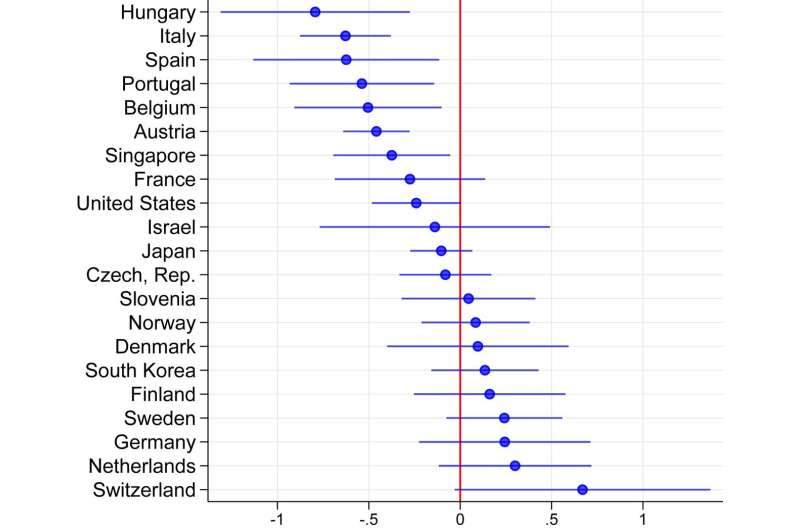August 31, 2021 report
Pandemic led to lower birth rates in wealthy countries

A team of researchers at Università Commerciale Luigi Bocconi, has found evidence showing that birth rates in wealthy countries have declined during the global pandemic. For their paper published in Proceedings of the National Academy of Sciences, the group studied birth rates in 22 of the wealthiest countries in the world over the period 2016 to the early months of 2021.
During the early days of the pandemic, many pundits suggested that there might be a worldwide baby boom as people were forced to stay home from work and found themselves with few options to fill their time. Historians disagreed, however, noting that there was actually a baby-bust during the flu pandemic back in 1918. People living in uncertain times, they note, generally tend to put off having children until things return to normal (the end of WWII, for example, led to a major baby boom). In this new effort, the researchers have found that the historians were correct, at least in wealthy countries.
The work involved obtaining birth records from 22 of the wealthiest countries and then comparing them year over year from 2016 through the beginning of this year. Noting that there are known seasonal variations in birth rates, the researchers made month-to-month comparisons.
The researchers found that overall, birth rates declined during the pandemic with some countries experiencing dramatic drop-offs. Italy, for example, saw a decline of 9.1%. Notably, the U.S. did not see a decline, but the researchers suggest that might have been because their data only ran to December 2020. The researchers also noted that the drop-offs began approximately nine months after the pandemic began, suggesting that people were reacting to the sudden instability by choosing not to have children. They also note that it is too early to tell if the drop-off will be made up by a mini-boom in births after conditions have improved to the point where people feel comfortable having the children they put off conceiving during the pandemic. If not, there could be repercussions years from now for the childcare industry, schooling and even the labor market.
More information: Arnstein Aassve et al, Early assessment of the relationship between the COVID-19 pandemic and births in high-income countries, Proceedings of the National Academy of Sciences (2021). DOI: 10.1073/pnas.2105709118
Journal information: Proceedings of the National Academy of Sciences
© 2021 Science X Network


















